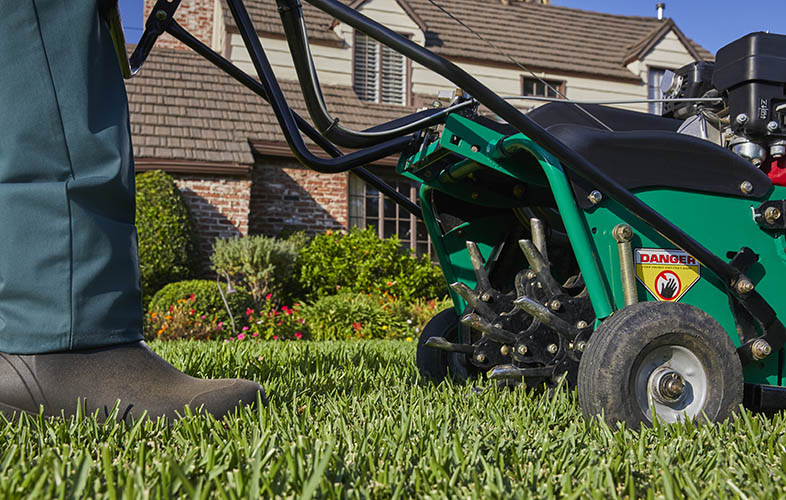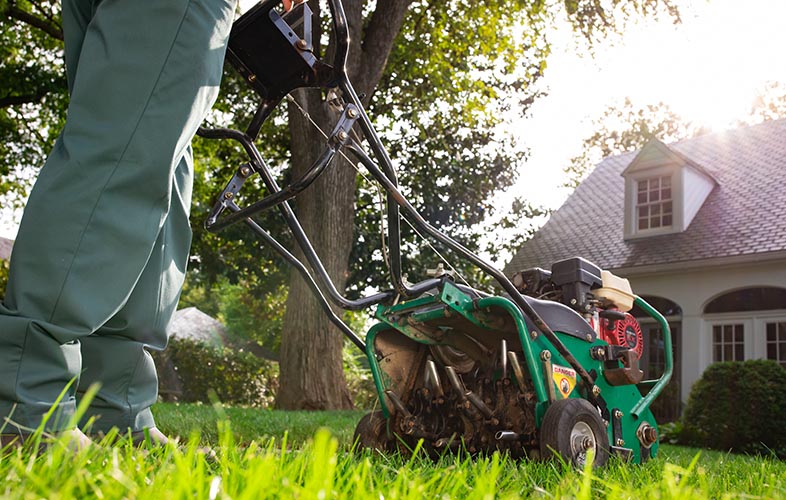Homeowners with Bermudagrass lawns often want to know how to keep Bermudagrass green in the winter. Unfortunately, you can’t — when it gets chilly, your lawn will enter dormancy and begin to turn brown. However, with warmer temperatures come spring, it’ll green up again fairly quickly.
Winter dormancy in warm-season grasses is similar to hibernation - a period of inactivity that helps conserve stored energy and resources. As a result, plant leaves lose their chlorophyll (green color) and turn brown.
Winterizing Bermudagrass can help ensure that come spring and summer, your lawn is in great shape to grow thick, strong, healthy, and green. Here are some things you can do to help protect your lawn over the winter:
Fertilize in the Early Fall
To reduce the chance of winter injury, ensure your Bermudagrass lawn is fertilized with a nitrogen-free, potassium fertilizer in the early fall before dormancy hits. Potassium helps build strong roots and also helps harden off the grass before it enters dormancy, lowering the susceptibility to winter injury. Then, your spring fertilization service should provide your lawn with nitrogen to jump-start green up. Leave the guesswork up to your TruGreen® lawn care expert who will ensure your lawn receives the nutrients its needs at the appropriate time to suit your lawn’s unique needs.
Mow
Wondering how short you should cut Bermudagrass before winter? Generally, a Bermudagrass lawn should be mowed to a height of around one and half inches, but can be left a little longer in the winter. No matter the season, you’ll want to keep your Bermudagrass lawn under 2.5 inches, and remember not to cut more than ⅓ of the leaf blade at a time.
Adjust Watering During Dormancy
As fall transitions to winter, your lawn will go dormant—at which point, the slowdown in growth leads to grass plants needing less water. Aim to water your lawn as usual up until you begin to notice your grass browning. Once the lawn is fully dormant, watering only needs to take place during extended dry periods. If no natural rainfall occurs, dormant lawns should receive around 1 inch of water every 4 weeks to remain healthy.








 Back to all blogs
Back to all blogs

Facebook
X
Youtube
Copy Link
Email